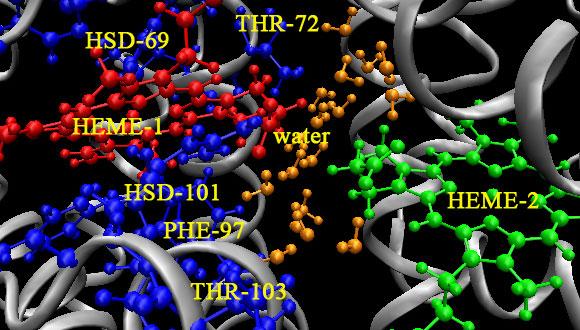Special Chemistry Seminar: Pharmacological Adaptation of Proteostasis to Ameliorate Neurodegenerative Diseases
Prof. Jeffery W. Kelly, The Scripps Research Institute, California, USA
2023 Wolff Award Winner
Abstract:
The cellular protein homeostasis, or proteostasis network regulates proteome function by controlling ribosomal protein synthesis, chaperone- and chaperonin-mediated protein folding, protein trafficking, proteasome and lysosomal-directed protein degradation, and related processes. Stress-responsive signaling pathways match proteostasis network capacity with demand in each subcellular compartment to maintain or alter cellular homeostasis. The beginning of the seminar will focus on how a protein homeostatic deficiency leading to degeneration in a spectrum of aging-associated amyloid diseases can be stopped or slowed utilizing small molecule kinetic stabilizers. The clinical efficacy of tafamidis, a transthyretin kinetic stabilizer approved for use in >40 countries for the amelioration of polyneuropathy and cardiomyopathy, will be covered in the context of what we have learned about amyloid diseases and what remains to be learned. The data strongly support the hypothesis that protein aggregation is the driver of degeneration in ≈ 70% of the patients, the notion that the process of transthyretin aggregation causes post-mitotic tissue destruction, including central nervous system destruction, albeit through a mechanism(s) being sought. The second third of the talk will focus on how we discovered drug candidates that adapt proteostasis by enhancing lysosomal flux via a HTS. One of these compounds extends lifespan and healthspan in C. elegans. Another mTOR inhibitor-independent autophagy activator hit reduces cytotoxic axonal mutant prion protein aggregate levels within endosomes of murine primary hippocampal neurons and normalizes axonal trafficking deficiencies, studies performed in collaboration with the Encalada Lab at Scripps. In addition, a subset of hits from the HTS robustly clear phosphorylated and insoluble tau, while reducing tau-mediated neuronal stress vulnerability in an iPSC-derived neuronal familial tauopathy model, studies carried out in collaboration with the Haggarty Lab at Harvard. The last third of the talk will focus on how stress-responsive signaling pathway activation can be used to rescue the folding and trafficking of a critical secreted protein associated with a human loss-of-function disease.
Seminar Organizer: Prof. Micha Fridman


